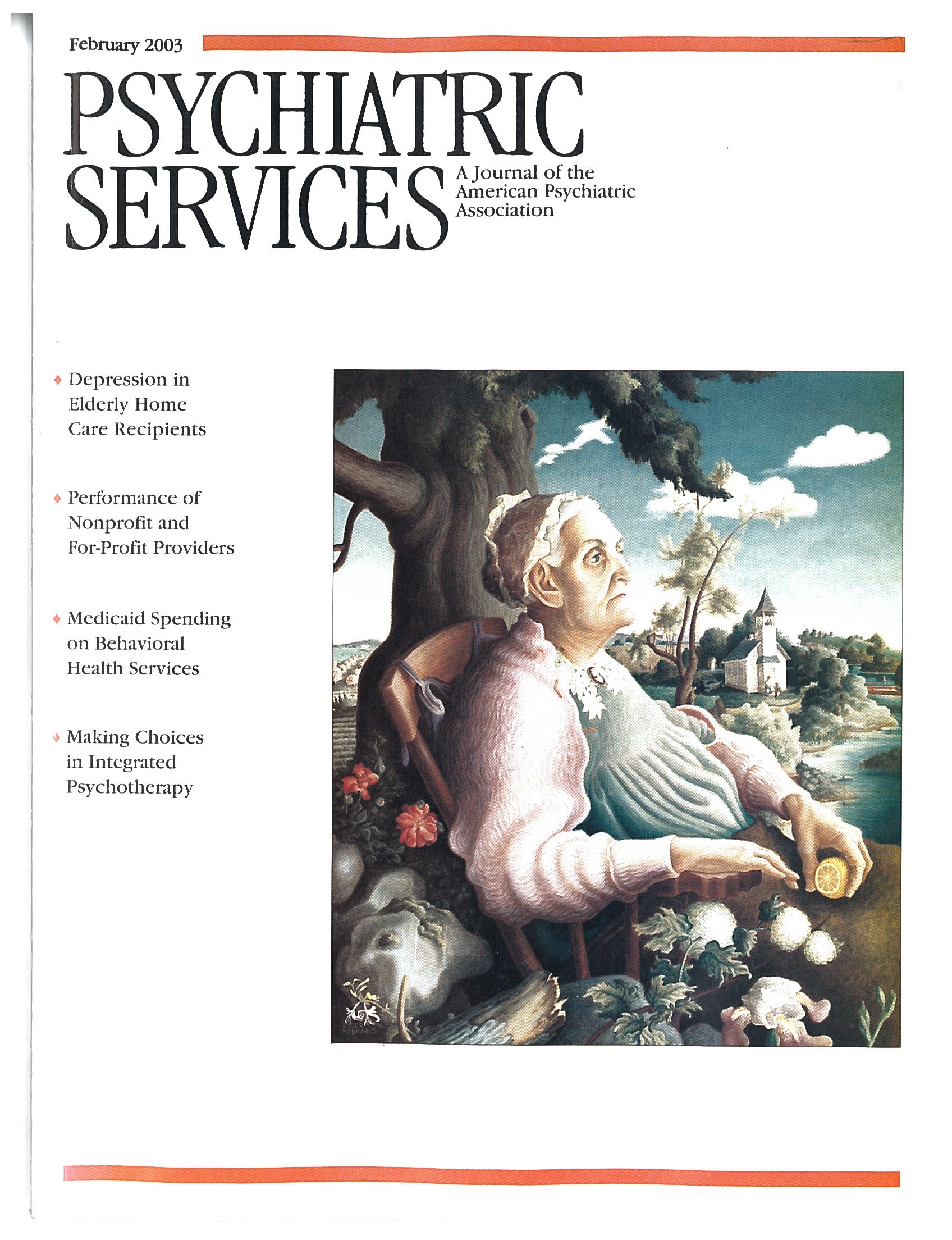The Performance of For-Profit and Nonprofit Care Providers
Nonprofit providers of psychiatric inpatient care perform as well as or better than their for-profit counterparts. This is the major finding of a literature review by Pauline Vaillancourt Rosenau, Ph.D., M.P.H., and Stephen H. Linder, Ph.D., in this month's issue that examined peer-reviewed studies comparing the performance of U.S. for-profit and nonprofit providers of medical and psychiatric care. Four performance areas were examined: access, quality of care, cost-efficiency, and the amount of charity care provided. The search yielded 149 articles published since 1980, 17 of which focused on providers of psychiatric care. Thirteen of the 17 studies were national, one included data from 32 states, and three focused on California. Sixteen studies found that the performance of the nonprofit providers was superior or equal to that of the for-profit providers. The results were much the same for all other health care providers—such as hospitals, nursing homes, home health care organizations, and dialysis centers—although less pronounced than for psychiatric care providers (see page 183).
Medicaid Expenditures on Behavioral Health Care
The Medicaid program is the largest single public payer for behavioral health services. More than 40 million people are enrolled in Medicaid, and the program's annual budget is nearly $225 billion. What proportion of Medicaid dollars are spent on mental health and substance abuse care? A literature and Web search conducted by Tami L. Mark, Ph.D., M.B.A., and her colleagues found only 14 studies since 1984 that addressed this question. Their results indicate that about one in ten Medicaid dollars is spent on behavioral health services—the estimates range from 9.3 to 13 percent. In contrast, private health insurance expenditures for such services range from 3.1 to 5.6 percent. Expenditures on substance abuse services account for less than 2 percent of Medicaid expenditures and between .4 and .8 percent of private health insurance claims. The authors describe the advantages and disadvantages of four methodologies that have been used to calculate Medicaid expenditures for mental health and substance abuse services (see page 188).
Strategies to Reduce the Costs of Prescribing SSRIs
Over a three-year period, the Portland (Oregon) Veterans Affairs Medical Center was able to save about $700,000 on prescriptions of selective serotonin reuptake inhibitors (SSRIs) for inpatients and outpatients. In this month's issue Steven K. Dobscha, M.D., and his colleagues describe a multifaceted intervention implemented by the medical center when the costs of prescribing all antidepressants increased by 50 percent in 1998; nearly 90 percent of those expenditures —$1.1 million—were for SSRIs. Over the study period, the mean cost of SSRIs per patient per month fell by 23 percent, from more than $54 to a little over $42. Approximately 75 percent of the savings was attributable to provider education and feedback about the use of a preferred antidepressant, and about 25 percent was attributable to tablet splitting (see page 195).
Severe Mental Illness and the Global Burden of Disease
In the Economic Grand Rounds column, Martin Fleishman, M.D., describes the Global Burden of Disease Study initiated by the World Health Organization and the World Bank. Whereas schizophrenia is ranked ninth on the list of the ten leading causes of disability in the 1990s, it does not appear among the projected top ten causes in 2020. Dr. Fleishman believes that in 2020 schizophrenia may be much closer to the top of the list than anticipated. He illustrates the hazards of predicting the future by listing more than two dozen socioeconomic changes brought about by antipsychotic medications that would have been difficult to predict in 1953, when chlorpromazine was introduced. Changes such as these, he argues, are best understood within the context of "psychopharmacosocioeconomics" and should be considered in predictions of the global burden of disease (see page 142).
Briefly Noted…
The books section begins with a review of four books about male body image and modification (see page 255).
The department of psychiatry and behavioral sciences at Johns Hopkins School of Medicine undertook several initiatives to adapt to a radically altered professional environment (see page 236).
The Practical Psychotherapy column describes factors to consider in providing an integrated psychotherapy—one that includes dynamic, analytic, interpersonal, relational, and cognitive-behavioral techniques as well as medication when indicated (see page 152).

